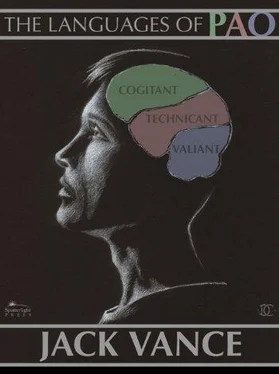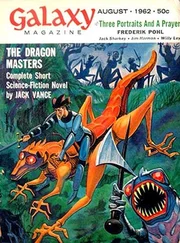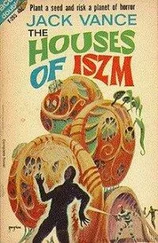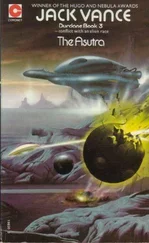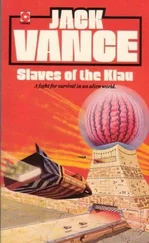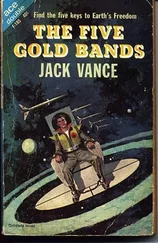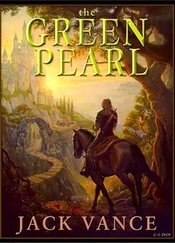The Languages of Pao
by Jack Vance

In the heart of the Polymark Cluster, circling the yellow star Auriol, is the planet Pao, with the following characteristics:
Mass: 1.73 (in standard units)
Diameter: 1.39
Surface Gravity: 1.04
The plane of Pao’s diurnal rotation is the same as its plane of orbit; hence there are no seasons and the climate is uniformly mild. Eight continents range the equator at approximately equal intervals: Aimand, Shraimand, Vidamand, Minamand, Nonamand, Dronamand, Hivand and Impland, after the eight digits of the Paonese numerative system. Aimand, largest of the continents, has four times the area of Nonamand, the least. Only Nonamand, in the high southern latitudes, suffers an unpleasant climate.
An accurate census of Pao has never been made. Eiljanre on Minamand is the largest city, with six million inhabitants. The twin cities Koroi and Sherifte on Impland share another six million between them. There are perhaps a hundred other cities of over half a million, but the great mass of the population—estimated at fifteen billion persons—lives in country villages.
The Paonese are a homogeneous people, of medium stature, fair-skinned with hair-color ranging from tawny-brown to brown-black, with no great variations of feature or physique. They are so similar the extra-planetary visitor, traveling from continent to continent, has the peculiar sense of meeting the same persons again and again.
Paonese history previous to the reign of Panarch Aiello Panasper is uneventful. The first settlers, finding the planet hospitable, multiplied to an unprecedented density of population. Their system of life minimized social friction; there were no large wars, no plagues, no disasters except recurrent famine, which was endured with fortitude. A simple uncomplicated people were the Paonese, without religion or cult. They demanded small material rewards from life, but gave a correspondingly large importance to shifts of caste and status. They knew no competitive sports, but enjoyed gathering in enormous clots of ten or twenty million persons to chant the ancient drones. The typical Paonese farmed a small acreage, augmenting his income with a home craft or special trade. He showed small interest in politics; his hereditary ruler, the Panarch, exercised an absolute personal rule which reached out, through a vast civil service, into the most remote village. The word ‘career’ in Paonese was synonymous to employment with the civil service.
In general, the government was sufficiently efficient, the Panarch not too flagrantly corrupt. In the event of unusual abuse the people countered with passive resistance, a vast surly inanition which neither threat, penalty nor blandishment could dissolve. It was a weapon used only seldom, but the fact of its existence held the normal human peccancy of the ruling caste within reasonable bounds.
The language of Pao was derived from Waydalic but molded into peculiar forms. The Paonese sentence did not so much describe an act as it presented a picture of a situation. The language might be said to consist of nouns, suffixed post-positions, and temporal indexes; there were no verbs, no adjectives; no formal word comparison such as good, better, best . There were no words for ‘prestige’, ‘integrity’, ‘individuality’, ‘honor’, or ‘justice’; for the typical Paonese saw himself as a cork on a sea of a million waves, lofted, lowered, thrust aside by incomprehensible forces—if he thought of himself as a discrete personality at all. He was one of a uniform mass, a crowd of men distinguished only by the color, cut and weave of their clothes—highly significant symbols on Pao.
He held his ruler in awe, but felt neither admiration, envy, loyalty nor reverence. He gave unquestioning obedience, and asked in return only dynastic continuity, for on Pao nothing must vary, nothing must change. The Panarch occupied a paradoxical position. He ruled, he made decisions, he loomed over the population like a mountain over the plain, and for this reason excited fearful respect. The average man faced only the most trivial choices: ritual and precedent shaped his every act. He prospered and suffered with the mass of his fellows, and could not help but feel that a person who lived unsupported, who dealt death and bestowed life, must be a man apart, with ice in his veins and a special fire burning inside his skull.
But the Panarch, absolute tyrant though he might be, was also forced to conform. Here lay the paradox: the single inner-directed individual of Pao was allowed vices unthinkable and abhorrent to the average man. But he might not appear gay or frivolous; he must hold himself aloof from friendship; he must show himself seldom in public places. Most important of all, he must never seem indecisive or uncertain. To do so would break the archetype.
Pergolai, an islet in the Jhelianse Sea between Minamand and Dronamand, had been pre-empted and converted into an Arcadian retreat by Panarch Aiello Panasper. Every trace of former habitancy had been removed; forests had been transplanted into the old paddies, wildflowers seeded, a stream diverted to form a chain of ponds. At the head of a meadow bordered by Paonese bamboo and tall myrrh trees stood Aiello’s lodge, an airy structure of white glass, carved stone and polished wood. The plan was simple: a residential tower, a service wing, and an octagonal pavilion with a pink marble dome. Here in the pavilion, at a carved ivory table, sat Aiello to his midday repast, wearing the Utter Black of his position. He was a large man, small-boned, well-fleshed. His silver-gray hair shone fine as a baby’s; he had a baby’s clear skin and wide unwinking stare. His mouth drooped, his eyebrows arched high, conveying a perpetual sense of sardonic and skeptical inquiry.
To the right sat his brother Bustamonte, bearing the title Ayudor—a smaller man, with a shock of coarse dark hair, quick black eyes, knobs of muscles in his cheeks. Bustamonte was energetic beyond the usual Paonese norm. He had toured two or three nearby worlds, returning with a number of alien enthusiasms which had gained him the dislike and distrust of the Paonese population.
On Aiello’s other side sat his son, Beran Panasper, the Medallion. He was a thin child, hesitant and diffident, with fragile features and long black hair, resembling Aiello only in his clear skin and wide eyes.
Across the table sat a score of other men: functionaries of the government, petitioners, three commercial representatives from Mercantil, and a hawk-faced man in brown and gray who spoke to no one. With greater or less appetite they devoted themselves to food served in mother-of-pearl tureens by small sober-faced girls. Aiello was attended by special maids wearing long gowns striped with black and gold. Each dish served him was first tasted by Bustamonte—a custom residual from times when assassination was the rule rather than the exception. Another manifestation of this ancient caution could be found in the three Mamarone standing vigilant behind Aiello. These were enormous creatures tattooed dead-black—neutraloids with reservoirs of synthetic hormones in place of their procreative glands. They wore magnificent turbans of cerise and green, tight pantaloons of the same colors, chest emblems of white silk and silver, and carried shields of refrax to be locked in front of the Panarch in the event of danger.
Aiello morosely nibbled his way through the prolonged meal and finally indicated that he was ready to conduct the business of the day.
Vilnis Therobon, wearing the ocher and purple of Public Welfare, arose and came to stand before the Panarch. He stated his problem: the cereal farmers of the South Impland savannahs were beset by drought; he, Therobon, wished to bring water from across the Central Impland watershed, but had been unable to work out a satisfactory arrangement with the Minister of Irrigation. Aiello listened, asked a question or two, then, in a brief sentence, authorized a water-purification plant at the Koroi-Sherifte Isthmus, with a ten-thousand mile pipe-line network to take the water where needed.
Читать дальше
